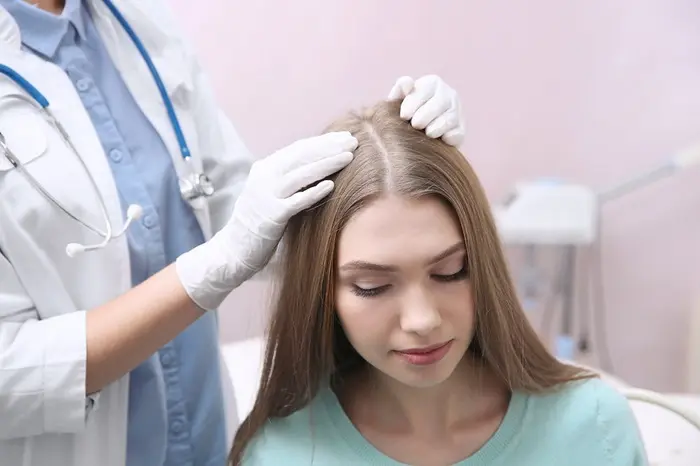Hair transplant surgery has become a popular solution for individuals experiencing hair loss. Understanding the longevity of transplanted hair is crucial for setting realistic expectations and ensuring long-term satisfaction with the procedure. This article explores the factors influencing the duration of transplanted hair, the expected timeline for results, and how to maintain the health of transplanted hair for the best outcomes.
Introduction to Hair Transplant Surgery
Hair transplant surgery involves moving hair follicles from a donor site to a recipient site on the scalp to restore hair growth. The two primary methods of hair transplantation are Follicular Unit Transplantation (FUT) and Follicular Unit Extraction (FUE). Both techniques aim to provide a natural-looking hairline and address baldness or thinning.
Understanding Hair Growth Cycles
1. The Anagen Phase
The anagen phase is the active growth phase of hair follicles. During this period, hair grows continuously. The length of this phase can vary among individuals, typically lasting 2 to 7 years.
2. The Catagen Phase
The catagen phase is a transitional phase that lasts for a few weeks. During this time, hair growth slows, and the hair follicle shrinks.
3. The Telogen Phase
The telogen phase is the resting phase of hair growth, lasting around 3 to 4 months. At the end of this phase, the hair sheds and a new hair begins to grow in its place.
Longevity of Transplanted Hair
1. Transplanted Hair Survival
Once transplanted, hair follicles typically enter a resting phase before resuming normal growth. The survival of transplanted hair depends on several factors:
Technique Used: Both FUT and FUE techniques have high success rates, but individual results can vary based on the surgeon’s skill and the patient’s overall health.
Donor Hair Quality: The quality and characteristics of donor hair affect the outcome. Strong, healthy donor hair generally provides better results.
Recipient Site Conditions: The health of the scalp and the conditions of the recipient site play a crucial role in the success of the transplant.
2. Expected Longevity
Initial Shedding: It’s common for transplanted hair to shed within the first few weeks after surgery. This is a normal part of the process as the hair follicles adjust to their new location.
New Hair Growth: New hair growth usually begins within 3 to 4 months. Full results are typically visible between 9 to 12 months post-surgery.
Long-Term Durability: Transplanted hair follicles generally continue to grow hair for a lifetime. However, some individuals may experience hair thinning or loss in non-transplanted areas due to ongoing natural hair loss.
Factors Affecting the Longevity of Transplanted Hair
1. Genetics
Genetics play a significant role in determining the overall success of a hair transplant. Individuals with a strong genetic predisposition for hair loss may experience continued thinning in non-transplanted areas, even though the transplanted hair remains.
2. Age
Age can influence hair transplant outcomes. Younger patients may experience ongoing hair loss, which can affect the appearance of transplanted hair. Older patients, who have more stable hair loss patterns, often achieve more predictable results.
3. Hair Quality
The quality of the hair follicles used for transplantation affects the durability of the results. Follicles from areas with strong, healthy hair tend to provide better and longer-lasting results.
4. Scalp Health
Maintaining a healthy scalp is crucial for the success of a hair transplant. Conditions such as dandruff, seborrheic dermatitis, or excessive oil production can impact the health and longevity of transplanted hair.
See Also: How Many Days After Hair Transplant Can I Wear a Helmet?
Post-Transplant Care and Maintenance
1. Immediate Post-Operative Care
Avoiding Trauma: Avoid any activities that could disturb the transplanted area, such as vigorous rubbing or scratching.
Medication: Follow the prescribed medication regimen, including antibiotics and anti-inflammatory drugs, to minimize the risk of infection and inflammation.
2. Long-Term Hair Care
Gentle Shampooing: Use a mild, non-irritating shampoo to clean the scalp and avoid harsh chemicals.
Scalp Treatments: Regularly use treatments that promote scalp health, such as topical minoxidil if recommended by your doctor.
Avoiding Excessive Heat: Minimize exposure to excessive heat from hair dryers, straighteners, or curling irons.
3. Lifestyle Factors
Healthy Diet: Maintain a balanced diet rich in vitamins and minerals that support hair health, such as biotin, zinc, and omega-3 fatty acids.
Stress Management: Manage stress through relaxation techniques, as stress can impact hair health and growth.
Common Myths and Misconceptions
1. Transplanted Hair Will Fall Out
While it is normal for transplanted hair to shed initially, it does not mean that the hair is lost permanently. New hair growth typically starts within a few months.
2. All Transplanted Hair Will Be the Same Quality
The quality of transplanted hair can vary based on the donor hair characteristics. However, most well-conducted transplants produce high-quality results.
3. Hair Transplants Are a One-Time Solution
While hair transplants can provide lasting results, ongoing hair loss may still occur in non-transplanted areas. Additional treatments or procedures may be necessary for continued hair loss management.
When to Seek Medical Advice
If you experience any issues with transplanted hair, such as persistent pain, infection, or unusual hair loss, it is essential to consult with your surgeon or a medical professional. Early intervention can address potential complications and ensure the best possible outcome.
Conclusion
Hair transplant surgery offers a promising solution for those seeking to restore their hair and improve their appearance. The longevity of transplanted hair is generally excellent, with transplanted follicles providing a long-term solution for hair loss. However, factors such as genetics, age, hair quality, and scalp health play significant roles in determining the success and durability of the results. Proper post-operative care, a healthy lifestyle, and realistic expectations contribute to achieving the best outcomes from hair transplant surgery. By understanding these factors, individuals can make informed decisions and enjoy long-lasting results from their hair restoration journey.
Related topics:

